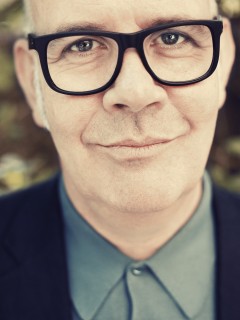A couple of years ago, at an early IIEX Conference, my colleague John Willshire and I ran a session with the audience. We both have a research background: he as a graduate trainee at BMRB and then in media agencies, me as a planner taught by Bill Schlackman and Paul Feldwick and inspired by Wendy Gordon, Ginny Valentine and Mike Hall.
I took the buyers (about 150 clients) into one room and John the vendors (about 300 research agency execs) into another. We each asked our captive sample a very simple question, one we force our corporate clients to focus on: what’s broken in this market for you? (As people who support and encourage innovation and culture change in organisations, we find that there are very many simple problems lying around that no-one ever gets round to fixing: until someone does and that’s what ends up being called ‘disruptive innovation’).
Now, let’s be honest, the sample here was far from representative of the industry as a whole. Delegates were the kind of people who want new and interesting things — or, at least they say they do. And qualms about the sample aside, they weren’t by any means pure play qual practitioners and their concerns were not purely qualitative (but then, the typical AQR member works in ‘integrated’ agencies not in qual agencies).
What do buyers want?
Caveats aside: there was a striking difference between the responses of both groups, revealing a fundamental issue that lies behind and overshadows all research practitioners. Put simply, these vendors articulated a sense of disappointment at clients’ responses to their focus on it. “They say they want innovation, but then they choose a really dull solution”; “they say they want out-of-the-box but they don’t want to pay for it”. You know the kind of thing.
Buyers, by contrast, revealed a really different set of concerns: they felt scared and uncertain, not of methodologies or new frames but for their jobs. For some, interest in the new seemed an almost wilful act of self-distraction from the main issue. Many underlined that their position as sole consumer expert in the team has long been undermined by the explosive access to consumer data that other departments have secured, particularly in e-commerce and social. Fear and concern for their status and future were tangible. In a nutshell: vendors were talking methodology to buyers who wanted help and support in navigating an increasingly confusing organisation which was slashing their budgets, removing their power base and reducing their status.
To BE or not to BE...
This is a mirror image of what I hear when ‘quallies’ angst over the alleged encroachment of creative and media agencies into our domain, under the banner of Behavioural Economics.
Pressure on the buyers means they constantly seek relief via ‘solutions’. Unfortunately they often express this as wanting innovation, or something 'new' — the illusion being that this will keep them ahead of the game. This utterance is misunderstood by the traditionally process-focused qual community as a request for novel methodologies. The predominant view of this community is that qual is a standalone tool, a thing in itself, which, if done according to 'the rules', will always provide 'the answer’. We pride ourselves on our technique and our deep understanding of the complex psychology behind brands and branding. Master practitioners all.
This way of thinking about what quallies do seems less and less suited to today's commercial environment, however, and is increasingly seen as too slow, too expensive and often too dull when presented. It lacks brio and agility. One way round this is to teach clients DIY research in the form of 'anthro-buddying' their markets, and another is to incorporate qual methods into ad-hoc methodological bricolage. Perhaps we could also emphasise the experience of participation rather than the content or the output? That way qualitative research isn't actually a 'thing' any more, but more like investigative DNA.
Not the BE all and end all
Viewed thus, sans frontieres, qual is not threatened by BE and ought to embrace it as a rich source of additional or confirmatory insight while (again) resisting the temptation to parade the 'new' methodologies it represents. The qual world, being more flexible and less trammelled by rigidities of scale, is in fact better placed to utilise behavioural and cognitive science understandings than many other departments of marketing, who talk a better game than they actually play. Jump in! Follow the likes of System 1, Acacia Avenue and The Behavioural Architects and bathe in this rich pool of contemporary decision science.
Perhaps the problem is not the method or the theoretical framework after all but a matter of orientation: does thinking and presenting ourselves as (for the top end) a research technician and (at the bottom end) a commodity service provider really help us help our clients? By getting the research absolutely right are we perhaps missing the real things we can do to help our paying clients within their organisation?
Who better to understand these poor, stressed professionals and their tricky organisations? Why not spend a little more time and effort doing for ourselves what we do for our clients? Maybe try some BE to get an up-to-date read on how they feel and how they and their colleagues interact and see where that gets us? It might point variously to a focus on the experience or on broadening the output of what we do or even redefining ‘qual’ as a binding interpretative skill set at the heart of marketing.


